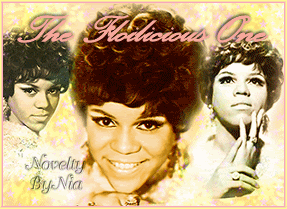Post by Emerald City on Aug 23, 2005 16:13:14 GMT -5
Teddy Harris Jr.: Pianist, saxophonist, teacher
BY MARK STRYKER
FREE PRESS STAFF WRITER
There was always an elegance about Teddy Harris Jr., from the fluid caress of his piano and saxophone work, to the curlicue grace and bebop lyricism of his arrangements, to the hip presence with which he led his bands and mentored generation after generation of young jazz musicians.
Harris, who emerged from the shadows of Motown to become one of the most important musicians on the Detroit jazz scene, took his cue from Duke Ellington, his greatest idol.
"I liked everything about Ellington," Harris told Jazz Masters Journal in 1993 upon receiving a prestigious Arts Midwest Jazz Master Award. "The way he played the piano, the way he wrote his music, the way he set a stage. Elegance. The first time I saw him I was about 7 years old. My dad and mother took me to see him at the Paradise Theatre. I knew exactly what I wanted to be after that."
Harris died Monday at John D. Dingell VA Medical Center in Detroit. He was 70 and had prostate cancer, said his daughter Karla Hall.
It's difficult to wrap Harris' career into a tidy package because his gifts were so varied and his contribution so sweeping. Harris was an inspired instrumentalist, composer, arranger, bandleader, conductor, and educator. He was a master of not one but two instruments, piano and saxophone. And he was at home in both jazz and popular idioms.
The product of Detroit's bebop explosion in the 1950s, Harris led a double life for years. He worked as a staff arranger and instrumentalist for Motown -- company founder Berry Gordy Jr. was a childhood friend -- while becoming a stalwart on the city's jazz scene. But Harris' most lasting contribution was probably as a teacher through workshop initiatives and his New Breed Bebop Society Orchestra, a laboratory begun in 1983 in which newcomers honed their skills within the crucible of Harris' musical vision.
"I see these kids coming home every day with their instruments and no place to play them after they leave school," he once told the Free Press.
At least two of Harris' students, pianist Geri Allen and saxophonist James Carter, became international stars. "He put us right into a professional situation and that helped us become polished as musicians and polished as human beings and cultural warriors," Carter said Tuesday.
Theodore Edward Harris Jr. was born in Detroit on Aug. 27, 1934. His first teacher was his father, jazz organist Theodore Harris Sr. He later studied with Detroit bebop guru Barry Harris and attended the New England Conservatory for a time before being drafted in 1956. After his discharge he studied briefly with classical pedagogue Nadia Boulanger in Paris before returning to Detroit.
At Motown, Harris worked with Marvin Gaye, Martha Reeves, the Temptations and Smokey Robinson and spent 16 years as musical director for the Supremes. He worked with blues musician Paul Butterfield and played with Aretha Franklin, appearing on one of her Columbia LPs in the early 60s.
Meanwhile, Harris matured as a jazz musician. He was best known as a pianist but also played tenor sax early on, later turning to soprano sax.. For years he was the house pianist and bandleader at Dummy George's, prized for his suave accompaniment. He backed scores of visiting greats, among them Lou Donaldson, Art Farmer, Joe Williams and Eddie Jefferson. He also recorded with Yusef Lateef.
Harris led a variety of groups ranging from a quartet to big band and even an orchestra with chorus, strings and woodwinds.
This year's Detroit International Jazz Festival on Labor Day weekend will be dedicated to Harris, for whom music, as it was for Ellington, was a mistress. "That's my life," Harris told the Free Press in 1993. "That's all I ever wanted to be."
Survivors include his father; daughters Karla Hall, Tanya Hilton, Margo Hall-Callender and Karolyn Evans-Jennings; two brothers, two sisters and four grandchildren. Services will be held Monday at St. Paul AME Church in Detroit; the time has yet to be determined.
BY MARK STRYKER
FREE PRESS STAFF WRITER
There was always an elegance about Teddy Harris Jr., from the fluid caress of his piano and saxophone work, to the curlicue grace and bebop lyricism of his arrangements, to the hip presence with which he led his bands and mentored generation after generation of young jazz musicians.
Harris, who emerged from the shadows of Motown to become one of the most important musicians on the Detroit jazz scene, took his cue from Duke Ellington, his greatest idol.
"I liked everything about Ellington," Harris told Jazz Masters Journal in 1993 upon receiving a prestigious Arts Midwest Jazz Master Award. "The way he played the piano, the way he wrote his music, the way he set a stage. Elegance. The first time I saw him I was about 7 years old. My dad and mother took me to see him at the Paradise Theatre. I knew exactly what I wanted to be after that."
Harris died Monday at John D. Dingell VA Medical Center in Detroit. He was 70 and had prostate cancer, said his daughter Karla Hall.
It's difficult to wrap Harris' career into a tidy package because his gifts were so varied and his contribution so sweeping. Harris was an inspired instrumentalist, composer, arranger, bandleader, conductor, and educator. He was a master of not one but two instruments, piano and saxophone. And he was at home in both jazz and popular idioms.
The product of Detroit's bebop explosion in the 1950s, Harris led a double life for years. He worked as a staff arranger and instrumentalist for Motown -- company founder Berry Gordy Jr. was a childhood friend -- while becoming a stalwart on the city's jazz scene. But Harris' most lasting contribution was probably as a teacher through workshop initiatives and his New Breed Bebop Society Orchestra, a laboratory begun in 1983 in which newcomers honed their skills within the crucible of Harris' musical vision.
"I see these kids coming home every day with their instruments and no place to play them after they leave school," he once told the Free Press.
At least two of Harris' students, pianist Geri Allen and saxophonist James Carter, became international stars. "He put us right into a professional situation and that helped us become polished as musicians and polished as human beings and cultural warriors," Carter said Tuesday.
Theodore Edward Harris Jr. was born in Detroit on Aug. 27, 1934. His first teacher was his father, jazz organist Theodore Harris Sr. He later studied with Detroit bebop guru Barry Harris and attended the New England Conservatory for a time before being drafted in 1956. After his discharge he studied briefly with classical pedagogue Nadia Boulanger in Paris before returning to Detroit.
At Motown, Harris worked with Marvin Gaye, Martha Reeves, the Temptations and Smokey Robinson and spent 16 years as musical director for the Supremes. He worked with blues musician Paul Butterfield and played with Aretha Franklin, appearing on one of her Columbia LPs in the early 60s.
Meanwhile, Harris matured as a jazz musician. He was best known as a pianist but also played tenor sax early on, later turning to soprano sax.. For years he was the house pianist and bandleader at Dummy George's, prized for his suave accompaniment. He backed scores of visiting greats, among them Lou Donaldson, Art Farmer, Joe Williams and Eddie Jefferson. He also recorded with Yusef Lateef.
Harris led a variety of groups ranging from a quartet to big band and even an orchestra with chorus, strings and woodwinds.
This year's Detroit International Jazz Festival on Labor Day weekend will be dedicated to Harris, for whom music, as it was for Ellington, was a mistress. "That's my life," Harris told the Free Press in 1993. "That's all I ever wanted to be."
Survivors include his father; daughters Karla Hall, Tanya Hilton, Margo Hall-Callender and Karolyn Evans-Jennings; two brothers, two sisters and four grandchildren. Services will be held Monday at St. Paul AME Church in Detroit; the time has yet to be determined.









